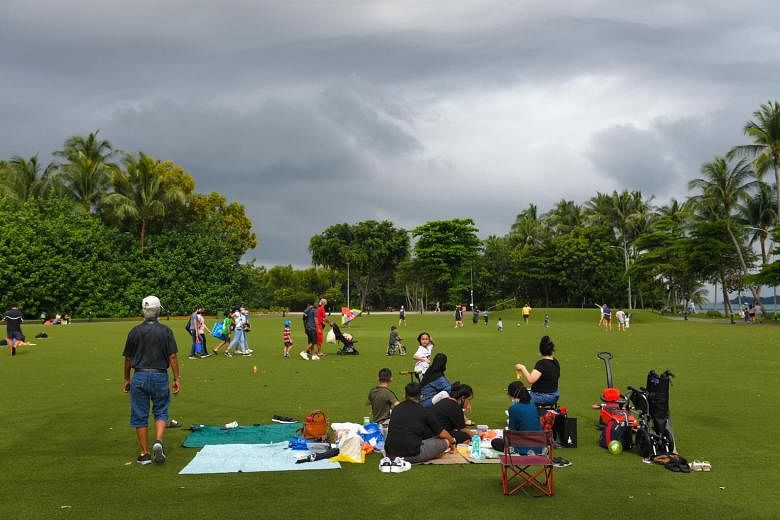SINGAPORE - Ministries and agencies will be working on better coordinating support measures to ensure vulnerable families get optimal help, Minister for Social and Family Development Masagos Zulkifli said on Thursday (April 8).
For example, ministries are coordinating so that those receiving the Covid-19 Recovery Grant while searching for jobs do not lose the grant as soon as they find one or are placed in training, and can continue to have some financial stability during the transition.
The grant is for workers who have lost their jobs, been placed on involuntary no-pay leave, or have sustained significant income loss due to the economic impact of Covid-19.
"It must come in a package so that it reinforces one another," said Mr Masagos during a radio interview with Money 89.3FM deejay Claressa Monteiro on Thursday afternoon.
"This is a big task going ahead because, for the longest time, we have worked as individual agencies, but we are going forward to try and find how we can coordinate better and benefit the family, to be able to look at each family quite differently and help them the way they need," he said.
The interview was on financial help for Singaporeans impacted by Covid-19.
It comes after the recent announcement that recipients of the Covid-19 Recovery Grant can apply for an additional tranche of three months of the grant if they need further support and continue to meet requirements.
The pandemic has affected Singaporeans across the board, but has also shone a light on the lower-income families who may have struggled more with the impact of job losses and pay cuts, as well as home-based learning with insufficient resources.
When asked about what worries him the most as Minister for Social and Family Development, Mr Masagos said: "I worry that our society, as we become more affluent, we also want to live separately from each other."
He took on the role in July last year and was previously the Minister for the Environment and Water Resources.
It is always easy to live with people who are like us but not with people who may not be like us, he said.
"It could be our race, it could be our religion, I worry when these are the things that pull our society apart," said Mr Masagos.
This is why housing in Singapore is planned in such a way that people in rental homes live right next to people in bigger homes, and they are more likely to go to the same schools and hawker centres.
"These are very precious constructs that we must preserve, and I worry one day when people want to live apart and away from the inconveniences that they see in daily life.," said Mr Masagos
"We just have to continue to work hard to make sure that we continue to be an inclusive society no matter what situation we are in - crisis or affluence."
Another goal of the ministry is to enable families to participate in society and take up opportunities.
"So even when they are poor, live in rental homes, we want to provide them with an ability to participate," he said.

For example, families do not reap the benefits when their children do not attend school 100 per cent of the time for various reasons, said Mr Masagos.
The ministry is looking to ensure these children also gain from the quality education that is available from pre-school and up, as well as better support for physical and mental maternal health, which affects how children develop.
"We need to put that together, to get it packaged together so that we are not just addressing the financial needs that they are looking for, but also a future, that they can be part of us and be together with us," he said.
That comes with calling for Singaporeans who have succeeded in the system to give back to the community.
He called for these Singaporeans to remember that their success is not just because they are smart or have a higher IQ, but because "we have a system that enables us to get out of where we were to be successful today".
He added: "And if you don't give back, then we also run the risk of having a society divided by envy. But when we give back when we have succeeded, people will appreciate the purpose of our success, not just for ourselves, but for others."


